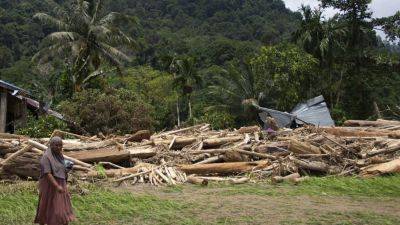Study About Purported Ancient ‘Pyramid’ in Indonesia Is Retracted
The American publisher of a study that challenged scientific orthodoxy by claiming that an archaeological site in Indonesia may be the world’s “oldest pyramid” says it has been retracted.
The October 2023 study in the journal Archaeological Prospection made the explosive claim that the deepest layer of the site, Gunung Padang, appears to have been “sculpted” by humans up to 27,000 years ago.
The study’s critics say that it incorrectly dated the human presence at Gunung Padang based on radiocarbon measurements of soil from drilling samples, not artifacts. The journal’s American publisher, Wiley, cited that exact reasoning in the retraction notice it issued on Monday.
Gunung Padang is widely considered a dormant volcano, and archaeologists say that ceramics recovered there so far suggest that humans have been using it for several hundred years or more — not anything close to 27,000 years. The pyramids of Giza in Egypt are only about 4,500 years old.
The retraction, based on a monthslong investigation, said that the study was flawed because its soil samples “were not associated with any artifacts or features that could be reliably interpreted as anthropogenic or ‘man-made.’”
Some archaeologists said in interviews that they welcomed the retraction. But the study’s authors called it “unjust,” saying in a statement on Wednesday that their soil samples had been “unequivocally established as man-made constructions or archaeological features,” in part because the soil layers included artifacts.







